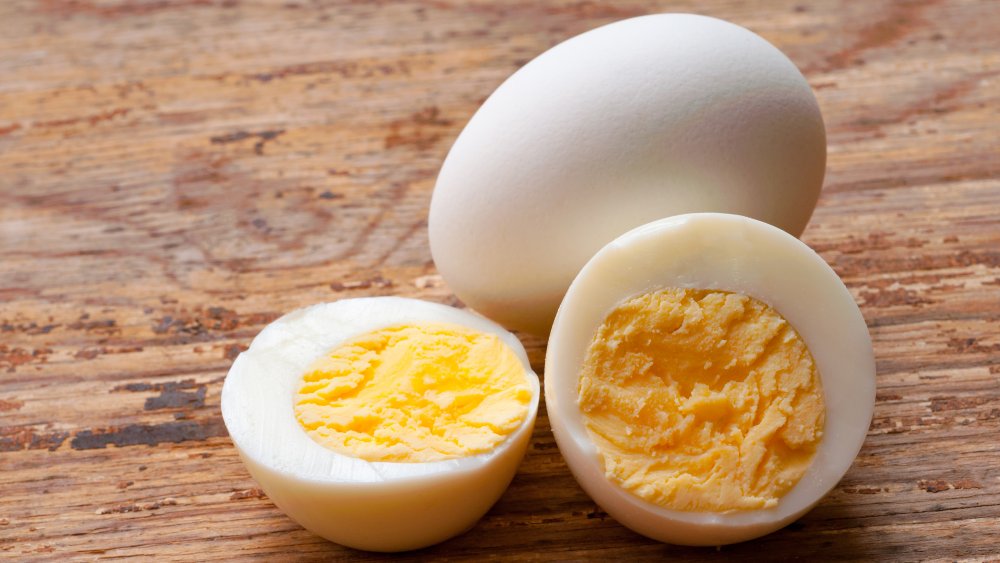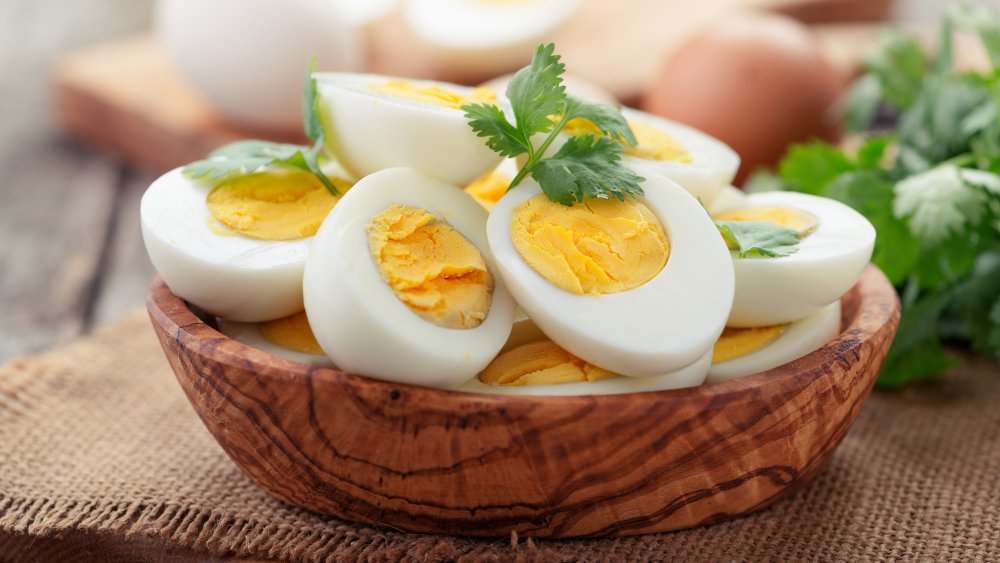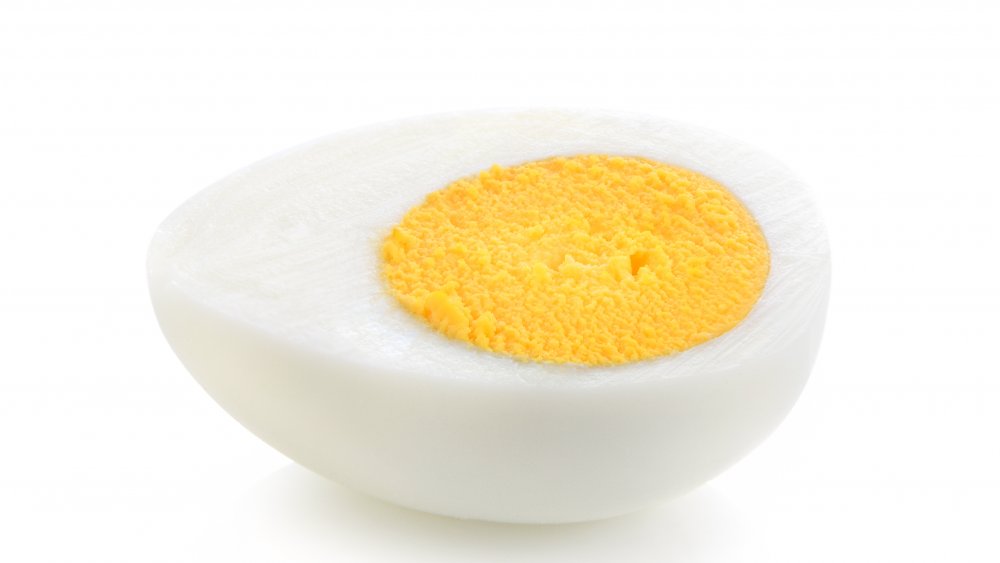The Biggest Mistake You're Making With Hard-Boiled Eggs
A hard-boiled egg is probably one of the first dishes you ever learn to make, simply because it's so easy. One or more eggs are laid in a pot, water is poured in, then the pot is left on the stove to boil. You wait a bit because you assume that if you turn off the heat too early you could end up with soft-boiled eggs, then you take them out. Maybe you rinse them in cold water and maybe you don't — in any case, the eggs are ready for you when you want them.
It might sound simple enough, but many things can go wrong when you're making hard-boiled eggs. You could be using the wrong pot, for instance, and by the wrong pot we mean one that's too small to hold all the eggs you want to cook. The Kitchn says boiling your eggs in cramped real estate ensures your eggs don't cook at the same temperature, and as a result, all come out in different stages of doneness. You wouldn't think it, but a problem also arises when you try to use eggs that are too fresh, because doing that means your eggs will be that much harder to peel, as the whites become more bonded to the shell. Then there are the times when you find a green ring around the egg yolk... you might think that's okay, but chefs disagree.
Hard-boiled eggs are easy to overcook
The biggest issue with hard-boiled eggs is one that you probably wouldn't notice if you've been eating them the same way all your life, and that's that you're overcooking them, which is where the dark ring around the yolk comes in — plus bad texture. "Overcooking hard-boiled eggs results in what I call the 'Death Star Effect.' This is where the egg is so abused by boiled water that it comes out looking like the imposing gray symbol of the Evil Empire. Not only are these eggs hard to look at, but the texture of the yolk is dry and chalky, and the flavor is something akin to the overly-sulfuric aroma of chronic flatulence. PLEASE DON'T DO THIS TO YOUR EGGS," Brooklyn restaurateur and brunch specialist Nick Korbee told Insider.
While Korbee is at odds with The Kitchn over the temperature water should be before eggs are dropped in (Korbee thinks the water should be boiling, while The Kitchn recommends the eggs and water are boiled at the same time to keep the eggs from cracking); both agree that eggs should be slid into an ice bath as soon as they are retrieved from the pot so you can cool them down as soon as possible. And the most important tip, no matter what method you use to cook your eggs? "Please don't wing it. Use a timer," Korbee said. For him that means a nine-minute boil for a creamy-textured yolk that's a brilliant yellow, and 11 minutes for deviled eggs.
Why your timer is important for perfect hard-boiled eggs
Everyone agrees that timing is key to getting your hard boiled eggs right. The Stay at Home Chef says different cooking times can give you different types of hard boiled eggs. Like The Kitchn, the Stay at Home Chef recommends sliding eggs into cold water, making sure the eggs have about an inch of water on top, then turning the heat on high to bring the water and eggs to a rapid boil. You then cover the pan, take it off the heat, and set a timer to get the kind of eggs you want. Four minutes will yield a custardy center, which gets progressively harder as time passes, and by the time you hit 12 minutes, the eggs will be well done. Whatever time you choose, remove them from the hot water and let them have a swim in an ice bath to keep them from cooking any longer.
But if you've done everything right, and there's still a green ring around your yolk, something else is cooking. "The ring is caused by a chemical reaction involving sulfur (from the egg white) and iron (from the egg yolk), which naturally react to form ferrous sulfide at the surface of the yolk. The reaction is usually caused by overcooking, but can also be caused by a high amount of iron in the cooking water," Mary Torell, a spokesperson for the Nebraska Department of Agriculture told UNL Food. But even if you do overcook your hard-boiled eggs and get the green ring around the yolk, don't fret — it's perfectly harmless and safe to eat... Just remember your timer next time.


